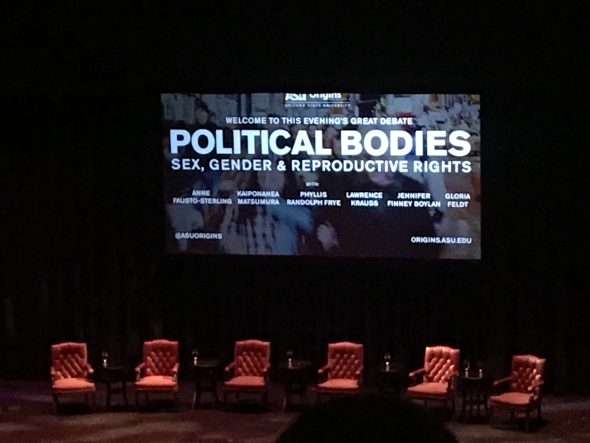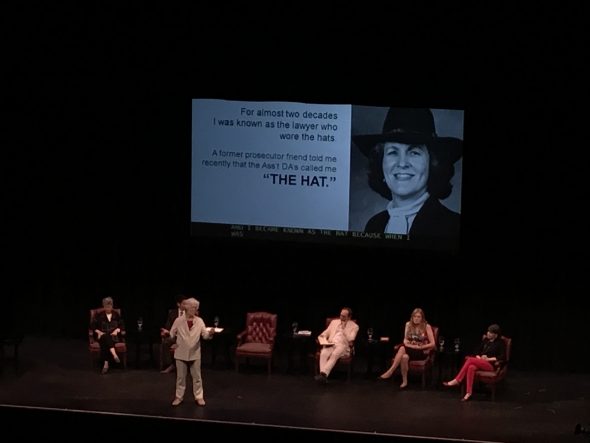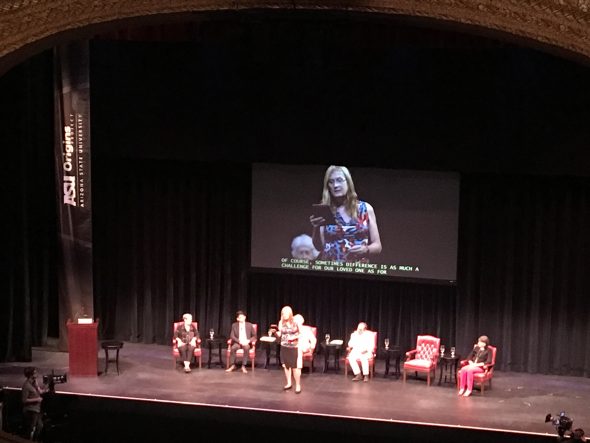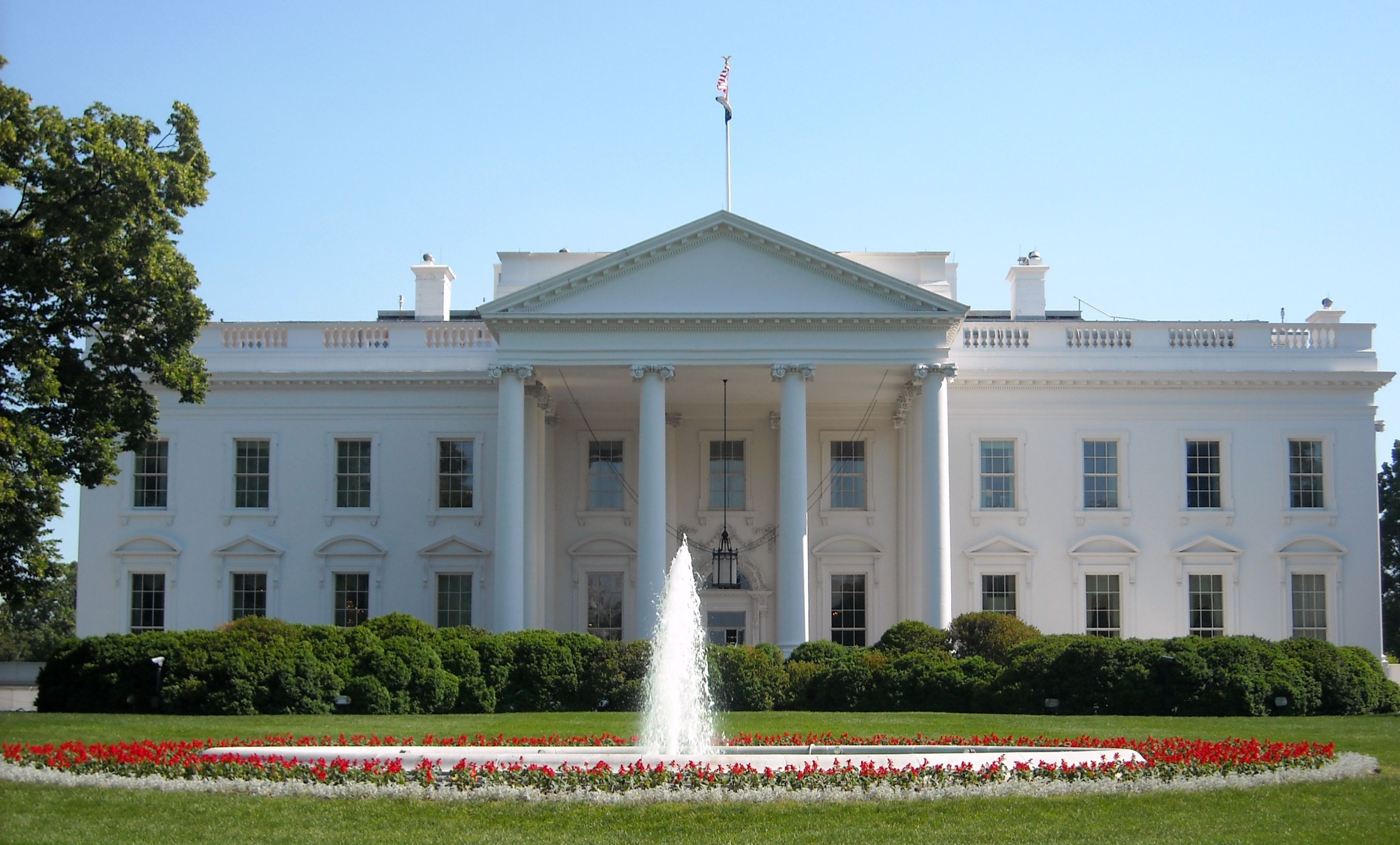Why the lack of education limits our perception of the world
A dialog between Ivaylo Vezenkov and Tina Eshieva

Orpheum theater (Phoenix, Arizona) awaiting for speakers
“Political bodies” was the theme of a discussion that we saw in a brochure near the entrance to the Cronkite School. The upcoming conversation seemed to be about gender and reproductive rights. Political bodies? Gender? These topics are often neglected. It was interesting to hear what the people of Phoenix think about identity in the context of policy. So the intriguing title brought us to a very beautiful building called The Orpheum theater, located in the downtown Phoenix. At the entrance we noticed people of different ages, students and families.
We plunged into the atmosphere quickly. The conversation was promising from the very beginning. We heard stories that in half of the world are still taboo. We had the chance to hear the uplifting story of the first transgender judge in the country, to find out how courageous it was to get out of the closet, to be yourself and to inspire other people to do the same. Above all, we saw people fighting for a cause, human rights and equality.
Even after the end of the discussion, when we walked out, we reflected on what we saw, while watching the endless sky of Phoenix and listening to the background music of a street musician.
Tina: Ivaylo, how did you find the event? I could never imagine such a discussion in Kyrgyz Republic, people do not come to the theater to discuss hidden topics.
Ivaylo: Discussions like this remind us that we still have a long way to go. I can’t wait for the moment when these topics will not be a taboo anymore, when we will finally stop labeling people. Also, I think that we are going in the right direction. More and more people need to hear these profound stories, to meet these people and to see that it’s only our perception and our prejudice that make them different. We are all people.
Ivaylo: What was the most interesting moment, that you will remember from this discussion?
Tina: The most interesting moment was the story of Phyllis Randolph Frye, in which she explained the transition period in her life. She talked about the obstacles that transgender people face. Although it’s still hard to come out of the closet and to be accepted nowadays, in the past it was even harder. Further, one of the other speakers mentioned the importance of the voices of people. If you want to be heard, you should actively participate in the decision making and vote.

Phyllis Randolph Frye, first transgender judge in U.S., grandmother of the National Transgender Legal and Political Movement

Jennifer Finney Boylan, LGBT advocate, NYT bestseller
Tina: How do we develop a tolerant global society?
Ivaylo: Maybe we can use the U.S example, a diverse country built on the foundations of tolerance and acceptance. This didn’t happened overnight but after years of human rights battle for equality. In my opinion the key is the education and the chance to have more knowledge, to meet people who are different than you. If people are more informed, there will be more chances for understanding. It might sound trivial but the lack of education limits our perception of the world.
LGBT rights in our countries:
- In Bulgaria, since 2003, the Protection Against Discrimination Act prohibits discrimination & hate speech on the basis of sexual orientation. In 2015 the parliament passed an amendment to the law that forbids discrimination of transgender people. Same sex marriage is not legalized in Bulgaria.
- Level of homophobia in the Kyrgyz Republic is high; the Parliament of Kyrgyz Republic in 2013 initiated the law to prohibit promoting topics related to the LGBT community – the so called “anti-gay propaganda”. It is actually a copy version of the Russian discriminatory law. The Kyrgyz version passed the first two readings in the Parliament with a large majority of voices. So if this law passed, it would criminalise dissemination of information aimed at forming positive attitudes toward nontraditional sexual relations, including in print media, radio, television, public assemblies and Internet. This is one of the big challenges in terms of human rights and rights of LGBT community in Kyrgyz Republic.
Ivaylo Vezenkov @IvayloVezenkov
Tina Eshieva @tinahumphreykg


I think this is wonderful blog post Ivaylo and Tina! I appreciate how you incorporated your unique experiences regarding race, gender and LGBT rights in your respective home countries (Bulgaria and the Kyrgyz Republic), while also providing an accurate and informative summary of the event you attended.
Moreover, interviewing each other shows how you are committed journalists, and is a great use of the team dynamic in the blogging buddies post.
You link to additional resources appropriately and also provided easy access for new readers to find you on Twitter. Great job!
I hadn’t at all considered how part of your experience in this country might be encountering conversations that aren’t permissible elsewhere. It’s absolutely critical to widening perspectives. While a panel discussion is definitely a strong way to initiative dialogue, I’m excited that we’ll be able to pursue these subjects more personal ways in class.
I enjoyed the Q&A style of the post. I’d also be curious to know how discussions like this might happen in your countries, such as in what forums or from what starting point.
I really enjoyed the blog overall. Please keep linking to more resources that will provide insight on how you approach these subjects!